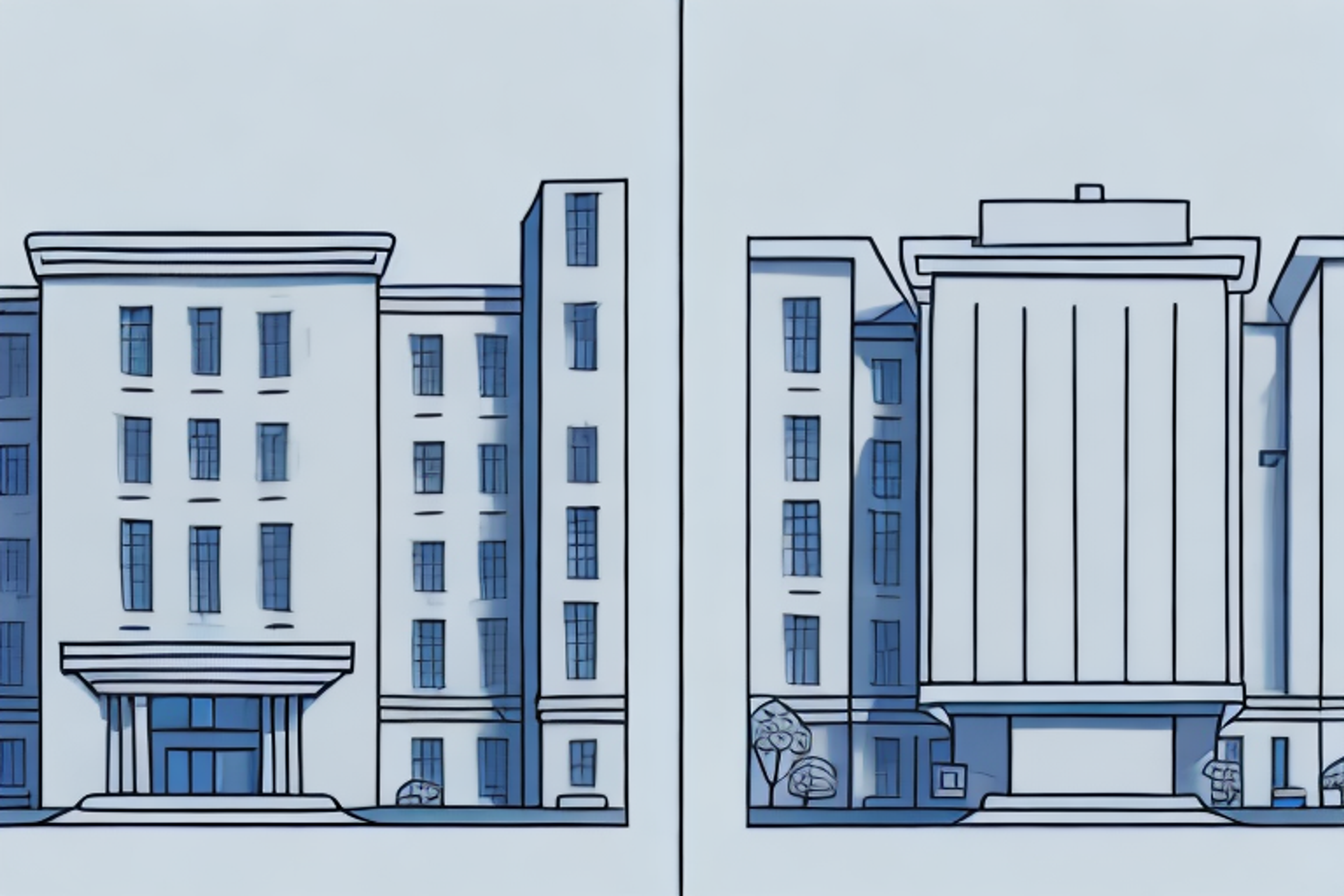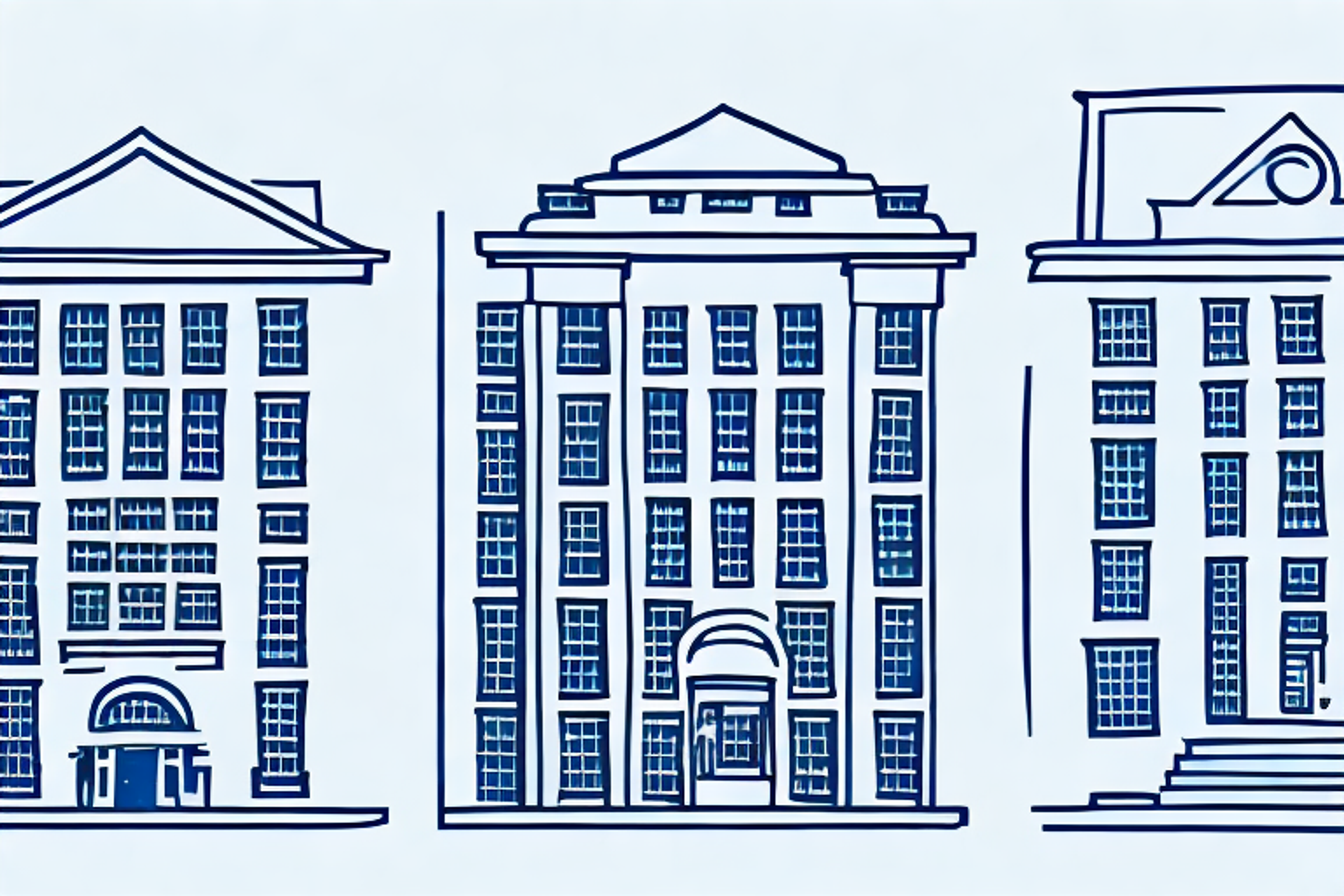New York University School of Law Vs. Georgetown University Law Center: An In-Depth Comparison
If you're considering attending law school, you may be thinking of applying to the New York University School of Law and Georgetown University Law Center. Take a detailed look at these factors and more to help you make an informed decision about which law school is right for you.
Posted March 6, 2025

Table of Contents
If you're considering attending law school in the United States, you've likely heard of the New York University School of Law and Georgetown University Law Center. Both schools have a reputation for excellence in legal education, but how do they compare in terms of faculty, curriculum, admissions, cost, student life, and future career prospects? Take a detailed look at these factors and more to help you make an informed decision about which law school is right for you.
Campus Location
One of the most notable differences between NYU Law and Georgetown Law is their location.
- NYU Law is situated in downtown Manhattan, giving students easy access to the financial, cultural, and legal hub of New York City.
- Georgetown Law has strong connections with government agencies and non-profit and international organizations in the DC area, providing students with unique opportunities for internships and networking.
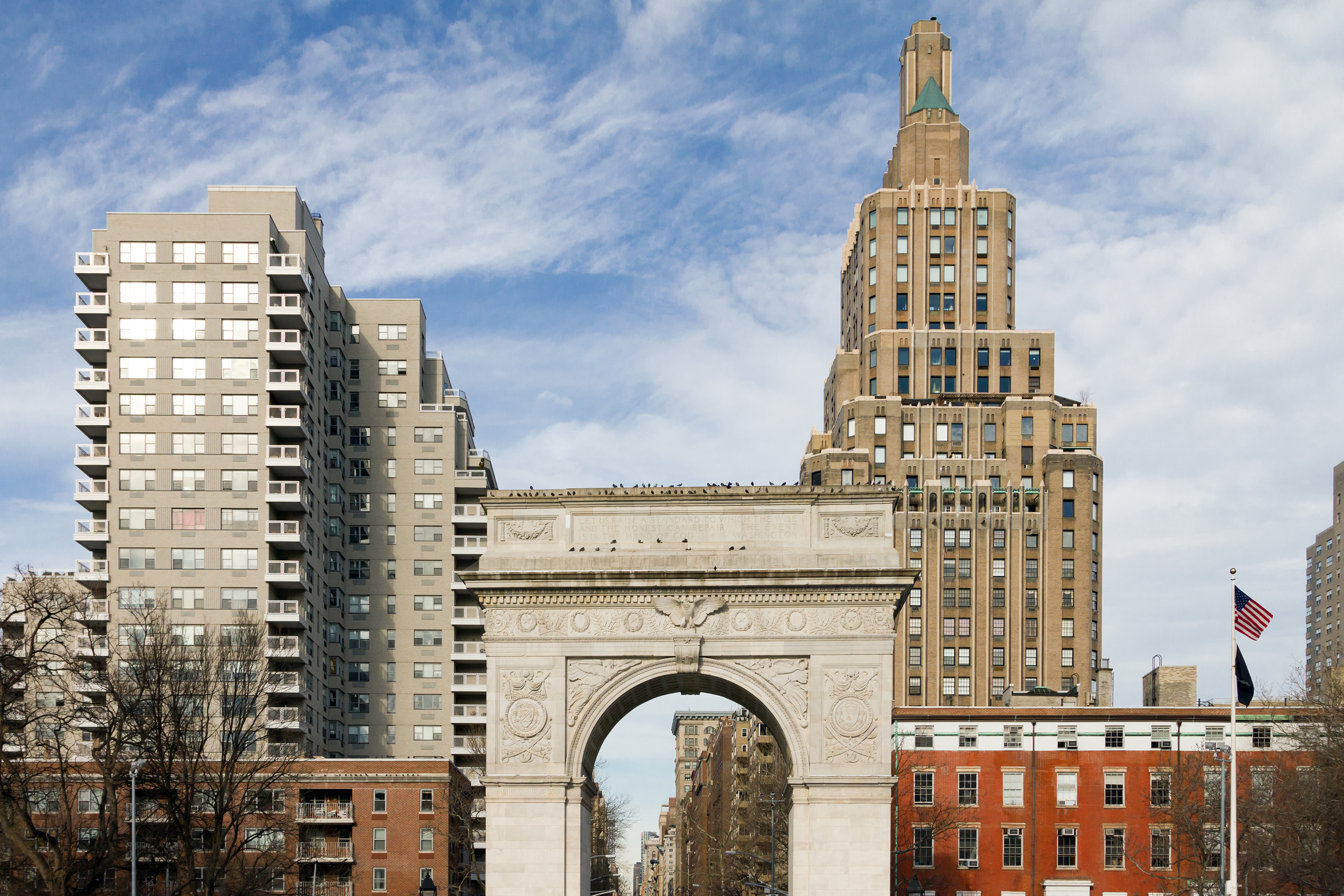
Differences in Teaching Styles and Areas of Expertise
- NYU Law emphasizes interdisciplinary approaches to legal education and research, with faculty members from diverse backgrounds including economics, philosophy, history, politics, and social theory. There is a strong focus on clinical education, providing students with hands-on experience in legal practice through its numerous clinics and externship programs.
- Georgetown Law has a strong reputation for its programs in domestic and international law. It places a greater emphasis on policy and theoretical legal analysis and offers greater flexibility in customizing its JD curriculum.
- Despite these differences, both schools offer exceptional legal education and produce graduates who go on to successful careers in a variety of legal fields.
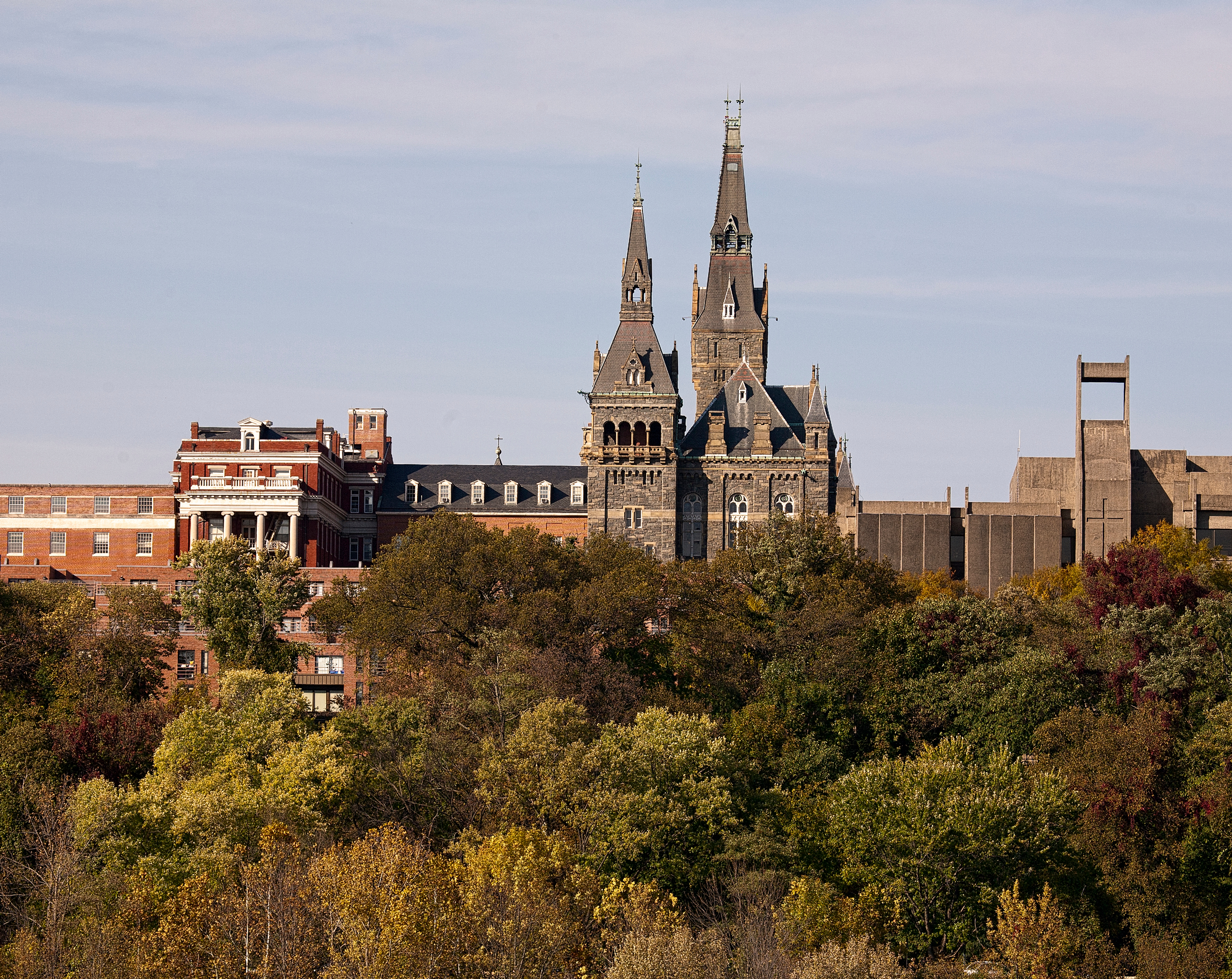
Core Courses, Electives, and Specializations Offered
The curriculum at NYU Law and Georgetown Law share many similarities in terms of core courses such as contracts, property law, and civil procedure. However, there are also differences in the specializations, hands-on learning experiences, and courses offered.
NYU Law Curriculum
1L Required Courses:
- Contracts
- Procedure
- Torts
- Lawyering
- Legislation and the Regulatory State
- Criminal Law
Areas of Study:
- Antitrust, Intellectual Property & Information
- Cities & Land Use
- Constitutional, Civil Rights, & Democracy
- Corporate & Commercial
- Criminal Justice
- Environmental
- Family, Gender, & Sexuality
- Global & International
- Human Rights
- Immigration
- Labor & Employment
- Law and Security
- Legal Theory, History, & the Social Sciences
- Litigation & Procedure
- Regulation & Public Policy
- Taxation
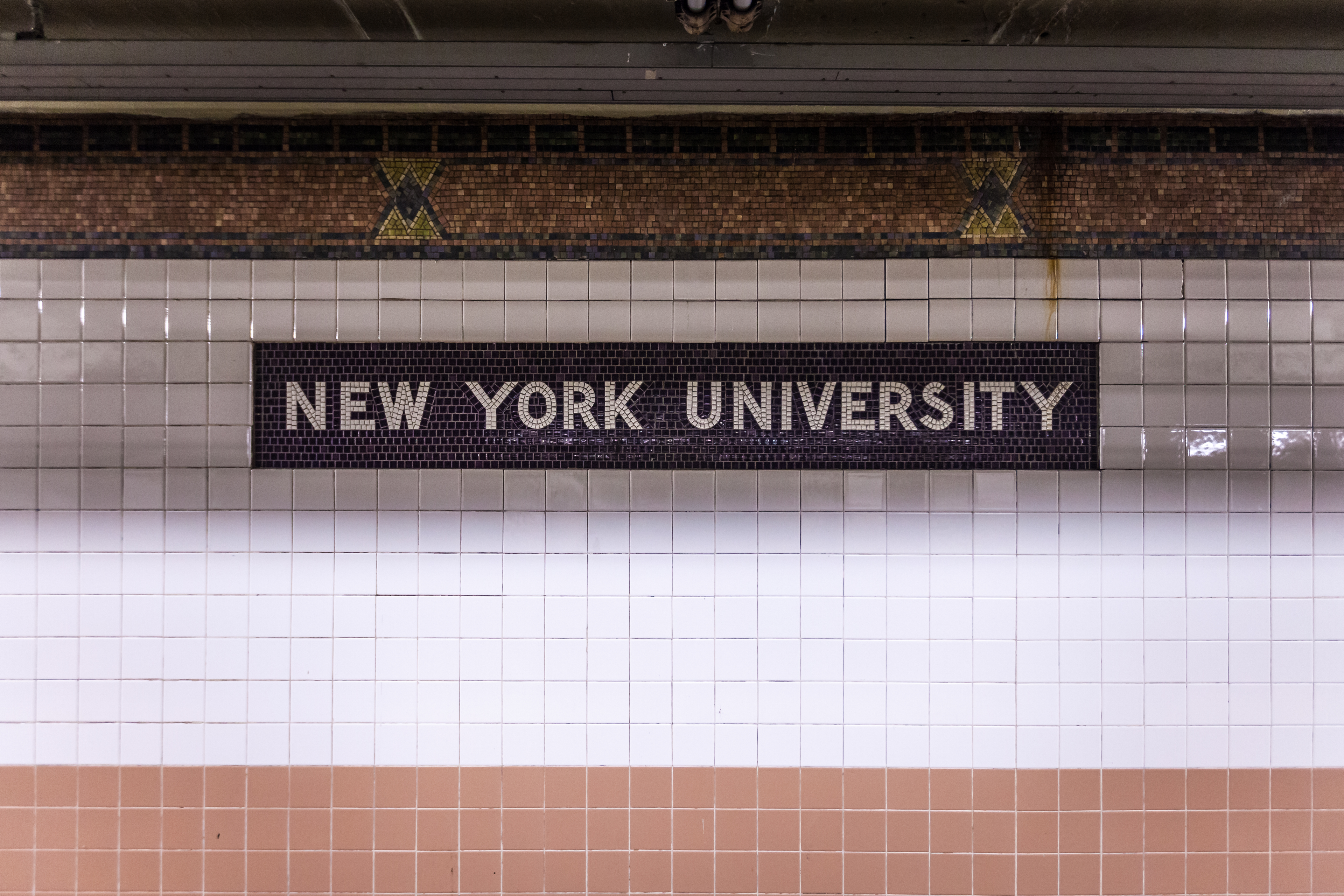
Dual Degrees Offered:
- JD/LLM in International Law
- JD/LLM in Taxation
- JD/MA in Economics, Politics, French Studies, or Latin American and Caribbean Studies
- JD/PhD in American Studies, Biology, Classics, Comparative Literature, Computer Science, Economics, English, French, German, Hebrew and Judaic Studies, Italian Studies, Mathematics, Middle Eastern and Islamic Studies, Music, Neural Science, Philosophy, Physics, Politics, Psychology (Cognition and Perception), Sociology, or Spanish
- JD/MBA
- JD/MPA (with NYU's Wagner Graduate School of Public Service, Harvard's Kennedy School, or Princeton's School of International Public Affairs)
- JD/MUP
- JD/MSW
- JD/MPP (with Harvard Kennedy School)
NYU Law has a strong emphasis on hands-on learning: first-year students enroll in the Lawyering Program to develop the skills needed for real-world practice, such as research, writing, case analysis, counseling, and interviewing. NYU Law is also the home of dozens of clinics working in advocacy and policy, alternative dispute resolution, business and technology, civil rights and racial justice, courts and procedure, criminal law, family law, global and international law, and immigration. NYU law students can also choose from a variety of externship courses, working alongside government and non-profit offices on civil rights and legal services, government lawyering, and technology and innovation.
Georgetown Law Center Curriculum
Georgetown Law Center's JD curriculum is more flexible, with two core curricula: Curriculum A is similar to the traditional first-year curriculum at most law schools, while Curriculum B takes a more integrated and innovative approach.

Curriculum A:
- Civil Procedure
- Constitutional Law I: The Federal System
- Contracts
- Criminal Justice
- Legal Practice: Writing and Analysis
- Property
- Torts
- Elective in legislative/regulatory law or international/comparative/transnational law
Curriculum B:
- Bargain, Exchange, and Liability
- Democracy and Coercion
- Government Processes
- Legal Justice Seminar
- Legal Practice: Writing and Analysis
- Legal Process and Society
- Property in Time

Areas of Study:
- Business & Financial Regulation
- Civil Rights & Antidiscrimination
- Constitutional Law & Theory
- Consumer Protection, Social Welfare, and Employment
- Criminal Law
- Environmental Law
- Feminism & Gender Studies
- Health Law
- Human Rights & Immigration
- International & Comparative Law
- International Economic Law
- Legal History
- Legal Profession & Professional Ethics
- Legal Writing and Student Scholarship
- Legal Theory
- Legislation and Administrative Law
- Litigation and Alternative Dispute Resolution
- National Security Law
- Race & Law
- Tax Law
- Technology, Communication, and Intellectual Property
Dual Degrees Offered:
- JD/MBA
- JD/MPP
- JD/MS in Foreign Service
- JD/MA in German and European Studies; Eurasian, Russian, and East European Studies; Latin American Studies; Arab Studies; or Security Studies
- JD/MPH with the Johns Hopkins Bloomberg School of Public Health
- JD/PhD in Government or Philosophy
Georgetown law students participate in experiential learning through clinics, project-based and fieldwork practicum courses, and externship. Many of Georgetown's legal clinics are focused on serving underrepresented individuals and organizations, such as survivors of domestic violence, incarcerated individuals, and workers. Due to its location in the nation's capitol, most of Georgetown Law Center's externships are in partnership with federal institutions such as federal courts, the Department of Justice, and the House of Representatives.
Admissions Process
Both NYU Law and Georgetown Law Center rank in the top 15 law schools nationally, so admissions are highly competitive for both schools. Both offer binding early decisions for applying to their JD programs: NYU's deadline is November 15 and Georgetown's is March 1. Regular applications are due for NYU Law by February 15, while Georgetown Law Center uses rolling admissions.
Both NYU Law and Georgetown Law Center accept LSAT and GRE scores, although Georgetown Law Center also accepts GMAT and GMAT Focus scores. You'll also need to submit a personal statement, resume, and $85 application fee for both programs.
For NYU Law, you'll need to submit two recommendations (with one additional recommendation required to be eligible for select scholarships). Georgetown Law Center requires one letter of recommendation, but applicants are welcome to submit additional letters. The Georgetown Law Center application also includes an optional statement for applicants to describe experiences that contributed to their journey as a person and a future legal scholar and lawyer and prompts for an optional response in the form of a one-minute video or short essay.
Student Bodies of NYU Law and Georgetown Law Center
NYU's entering class of 2023 had 430 students, with 60% female students and 47% students of color. NYU Law has an acceptance rate of about 16.8%. Georgetown's entering class of 2023 is made up of 600 students, 59% of them being women and 35% being students of color. Its acceptance rate is about 19.6%.
Cost of Attendance
Attending law school can be expensive, and it's important to consider the cost of attendance when deciding which school to attend. Both NYU Law and Georgetown Law are private schools with high tuition fees. However, both schools offer generous financial aid packages, including scholarships and grants, to help make law school more affordable for students. NYU Law has a Loan Repayment Assistance Program for students committed to working in public service after graduation. Scholarships offered include the AnBryce Scholarship for first-generation graduate or professional degree students and the Furman Public Policy Scholarship for students committed to public policy careers.
Georgetown Law Center also has a Loan Repayment Assistant Program for graduates working in public interest law and law-related government careers. Applicants may also apply for the merit-based scholarship.
It's also important to consider living expenses when calculating the cost of attendance. Both NYU Law and Georgetown Law are located in expensive cities, with high costs of living, but NYU is especially expensive. Students should budget for housing, food, transportation, and other expenses when planning for law school.
NYU Law's tuition is currently $76,878 per year with $3,136 in annual fees. Combined with estimated living expenses of $34,010 per year, the cost of attendance comes out to $114,024 each year. The median grant amount was $25,000 per year. Georgetown Law Center's annual tuition is $75,950, and its estimated living expenses are $32,250 per year, totaling at $108,200 per year. The median grant amount was $35,000 per year.

Career Opportunities
One of the most important factors to consider when choosing a law school is the quality of career services available to students. NYU Law and Georgetown Law both have robust career services departments that offer guidance on internships, job interviews, and networking events. However, NYU may be a better fit for those looking to work in the private sector, while Georgetown may be a better fit for those interested in government.
About 96.7% of NYU Law graduates passed the bar on their first try. Most NYU Law graduates stay in New York, but many also go on to work in Washington, DC and California. 97.7% of the NYU Law class of 2022 were employed within 10 months of graduation, with 71.2% working in law firms, 0.9% working in business and industry, 19.7% working in government and public interest law, and 8% working in judicial clerkships. The median salary of the class of 2022 was $215,000, but this amount varies greatly depending on the field graduates practice in.
Around 91.5% of Georgetown Law Center graduates passed the bar on their first attempt. Most graduates went on to practice in DC or New York, although California, Maryland, Texas, and Illinois were also popular locations. 98% of Georgetown's class of 2022 was employed within 10 months of graduation, with 66.6% of graduates working in law firms, 3.7% working in business and industry, and 0.6% working in education. As expected, more Georgetown graduates go on to work in government, public interest, and judicial clerkships, at 9.1%, 9.3%, and 10.7% respectively.
Notable Alumni
NYU Law and Georgetown Law have produced many distinguished alumni who have gone on to successful careers in law, politics, business, and other fields.
Some notable alumni of NYU Law include former New York City Mayor Rudy Giuliani, international human rights lawyer Amal Alamuddin Clooney, and Nobel Peace Prize laureate Mohamed ElBaradei. Notable alumni of Georgetown Law Center include chair of the Federal Reserve Jerome Powell, journalist Walter Pincus, and Senate Democratic whip Richard Durbin.
Student Life on Campus
Law school can be academically rigorous, but it's also important to have opportunities for extracurricular activities and a vibrant social scene. NYU Law and Georgetown Law both offer a variety of clubs, organizations, and events for students to get involved in, ranging from moot court competitions to law journals to intramural sports teams.
Most NYU Law students live in D'Agostino Hall and Hayden Hall, which offer studio, one-bedroom, two-bedroom, and three-bedroom apartments. Most Georgetown Law students live in the Gewirz Student Center, although off-campus rentals are also available.
Key Takeaways
- NYU Law is ranked slightly higher overall, but both have excellent reputations and produce successful graduates.
- The JD curriculum at Georgetown Law Center is more flexible with more opportunities for individualizing in international affairs and law, government, and public policy.
- NYU Law is known for its strong education in business law, including tax, intellectual property, and contracts law.
For more information as you apply to law school, check out these resources:
